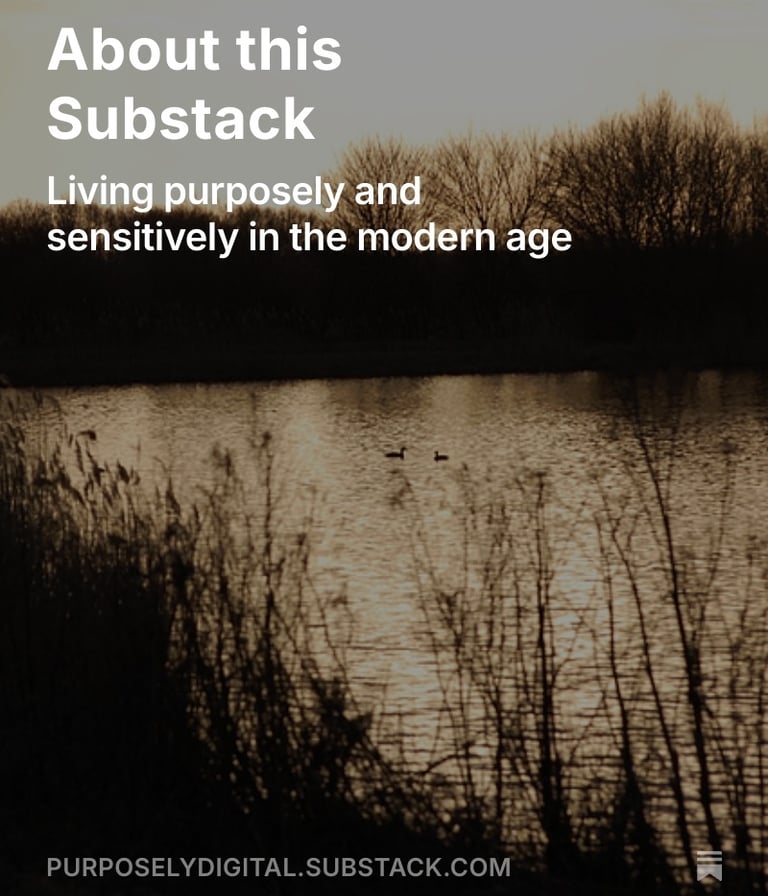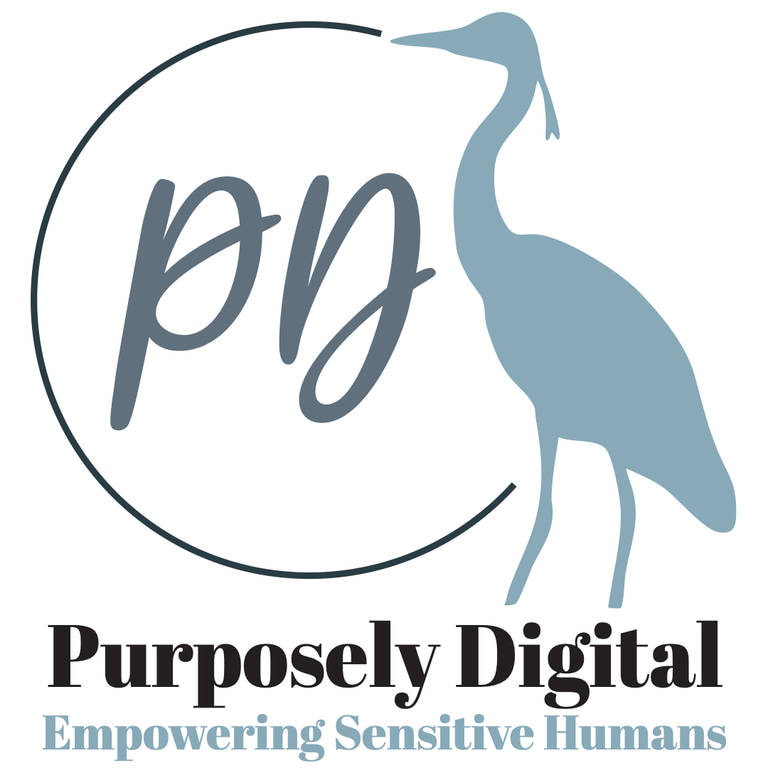50% OFF FALL PROMOTION! Step into fall purposely with 1:1 coaching. Only 2 coaching slots available. Click HERE.
Healing Polarization with Love
Love really is all we need. For Jesse Welles.
10/14/20259 min read


So I’m singin’ this song about loving
All the people that you’ve come to hate
[…]
You know, I really thought that there'd be power
In thinking half of y'all was just born fools
Thought I was gathering oats for my horses
I was getting by whipping my mules
"Horses" by Jesse Welles
It’s been quite a few years.
A pandemic.
Wars.
Political turmoil.
Fear.
Hate.
So much suffering.
So much pain.
Many of us have looked at our screens, social media feeds, and thought - what’s going on?
Woman, why's it gotta be so hard?
Sweet woman, to know who you really are?
[...]
America, girl, what’s goin’ on?
"America, girl" by Jesse Welles
It’s outrage at the “other,” taken to new heights by data-fueled algorithms.
Our human minds are prone to sorting, taking concepts and observations and organizing them in our minds into buckets with clear, concrete labels. We create these ideas and concepts to make sense of our world. It’s who we are - and from an evolutionary standpoint, it makes some degree of sense - dangerous things in this bucket, safe things in that one.
But we also do it to each other. We have a tribal tendency to “other” and subdivide ourselves, and media has always fueled this to some degree. First, it was by word of mouth - this is us, you are with us, here is who we are and what we believe. We’re not them. Then, it was with the printing press and advancements in print media. This is our magazine. Our newspaper. Here’s what we believe. They are not us.
And the best way to increase readership? Outrage. Outrage at the “other” sells.
In the modern age, our outrage has been monetized - taken, encouraged, and farmed. Outrage spreads faster than ever before, like a fire sweeping the world in a few clicks. Algorithms feed us more outrage and polarizing material because they are optimized to do one thing, and one thing only - maintain our attention. We have smartphones and are constantly connected to the outrage pinging away in our pockets. They create our own little outrage silos, fueled on our anger, our hate, recommending more and more extreme content to keep you drawn in, taking us on infinite scrolls, taking us to places far, far away… to worlds of specific ideas, an iron bucket where we are incased and can no longer see the sky, while the despicable “other” in their wrongness lurks outside.
"The Age of Surveillance Capitalism” by Shoshana Zuboff details this billion-dollar outrage industry, fueled by the commodification of our data. In the early 2000s, Google realized that “data exhaust” - data that is a byproduct of our online interactions - could be utilized to predict and shape our future behavior. This information was insanely valuable for companies to have to sell us products and create increasingly sophisticated targeted advertisements. And, it was also valuable to give to algorithms to mine even more of our data by knowing just what to feed us and capture our attention and get even more data to better capture our attention… and on and on in an endless loop of more sophisticated ads…
Psychologists and psychological models for humans have influenced the development of these algorithms and the outrage industry. Zuboff writes how the work of B.F. Skinner, a behavioral psychologist famous for operant conditioning and Skinner boxes, as well as psychologists from the gambling industry, influenced the work at large tech companies such as Google and Facebook (now Meta). In sum, they believed that human behavior was by and large shaped by the environmental stimuli around them - what reinforcements and punishments were doled out. And so, making a flashy social media algorithm based on these principles should draw people into infinite scrolls and more and more information on what stimuli appeal to someone would further increase its accuracy - again, on and on into more sophisticated, personalized, targeted, and effective algorithms.
It won't matter if you're neocon
Or a maga Democrat
When the war gets here
We're all gonna hold hands
All the Baptists and the Catholics
All the Marxists and the Fascists
When the war gets here
We're gonna get on the level
Everyone will look a little bit nicer
When you finally meet the Devil
"Red" by Jesse Welles
In my life experience and my time as an AI ethics researcher, I have come to the conclusion that the only way to combat polarization is with love.
Yes, the Beatles-esque “All You Need is Love” kind of love. Universal love. For everyone.
It doesn’t make much of an academic paper, that’s for sure, and yet I think it is the only way forward out of this polarized technological tangle we have gotten ourselves into.
The late cognitive psychologist Daniel Kahneman wrote a popular book called “Thinking, Fast and Slow” that was highly influential to me as a doctoral researcher and its lessons stick with me today. In his view, we have two systems of thinking - an automatic System I thinking and a deeper System II thinking.
While we need both, the real point here is that we can choose - System II gives us autonomy and the ability to choose how we want to interact and react to technology, based on our values.
It does take effort. It is hard. Those social media feeds are well designed to grab us.
But we are not Skinner boxes.
We are not solely reactive beings that react to stimuli in front of us.
We have cognition, we have values.
And we can choose love in the face of polarizing hate.
There's a brightness within you
Let it shine out in the blue
Let is guide you home tonight
May you remain within the light
Joy’s gonna save you from yourself
"Joy" by Jesse Welles
To understand love, I’d like to talk about our modern day bard, Jesse Welles, who - coincidentally - has successfully utilized YouTube and TikTok to reach millions with his songs and message of love. It’s become a trope at this point to say that Jesse Welles is the voice of a generation. His message is of love and protest, critiquing the insanity of hate, violence, war, and increasing polarization. He has integrity in his messages. He’s protesting hate and promoting love with a old 1960/70s protest music style, against violence, death, and pain and suffering on all sides. A recognition of common humanity against our true common enemy - hate, violence, war. He captures the hopelessness we feel in the face of our modern day world, and then - hope, through our power to choose joy and love in the face of chaos and apathy.
For me, Welles has been a way to process the complex emotions I feel as an American living abroad. It’s been hard to watch my home country descend into hate and deeper and deeper polarization. Hard to watch war and death rage across the world, further fueling deep ceded division and hate. Hard to see people hating in their silos instead of recognizing our common humanity and working towards peace. I’ve even been guilty of going on the good ol’ doomscroll myself and reading news too late at night, feeling myself slowly drawn into a silo. Listening to Welles helps me resist the silo, process the hopelessness, anger, and fear that can supersede peace and love.
He also takes me back to a memory - a memory of love and shared connection. In the summer of 2016, I was in Texas on a summer internship and had the opportunity to meet and interact with many different people from the Minnesotans I grew up with and Massachusettians I went to college with. I remember discussing the upcoming election and pressing policy issues. We disagreed of course. But we also learned a lot about each other - especially how “the other” had been portrayed to us, now that we were actually meeting and discussing with one of “them” in-person.
I left that experience full of insights and love, having grown a little. But when I returned to college, the environment was on fire with the upcoming election. There was only one way to behave, one way to think, one way to be. They were less understanding, and readily dismissed my stories of “the others.” I even started having dinners in my apartment with “hidden others” on campus - those whose views deviated from the accepted norm who publicly espoused the appropriate views but who privately believed differently. They were deeply uncomfortable and, I think, were grateful to have a place to talk, and I was more than happy to listen, debate, disagree, laugh, love, and break bread together.
I know that those people I had for dinner, and those in Texas, are now loving doctors, nurses, and researchers. Because they could be good people, who share my values of care and love, and want what is best for their communities and country - even if we disagreed on what that looked like.
I still feel love and smile when I think of them, and Jesse’s message of “singing a song about loving / all the people that you’ve come to hate” makes me think of them. Because he’s right. We’re on the same team - the human team against hate, violence, war and for peace, love, and compassion.
But I worry - could we sit down and talk today?
Would the love survive the last nine years of polarization, silos, hate?
I don’t know.
Maybe Man don't make the war
Maybe it's lying there in wait
And all it needed was our mud, and blood, and guts, and guns, and hate
Maybe Man don't make the war
Maybe it's calling all our names
Come Ye winners, lose your souls
Come Ye losers, die in vain
"War is a God" by Jesse Welles
I was, once upon a time, a protestor, in the traditional sense. Out canvasing, speaking, demonstrating.
But one time, things got out of control. The group was getting quite aggressive to our adversary. I felt an emotional shift from advocacy to hate. Real, dehumanizing hate. I thought things could get violent.
I went home shaking. I couldn’t handle it. The emotions overwhelmed me. This was not who I was.
I still believe that a good ol’ fashioned peaceful protest can bring about meaningful change. But I also now understand that they can become incubators for “othering,” breeding grounds for ideologies to spread like wildfire and breed hate. Maybe even violence. They can spin out of control.
And I cannot deal with that sense of responsibility on my shoulders - a responsibility to honor my value of non-violence, a commitment I take to heart.
And so I’m not a protestor - at least no longer in that way.
I do what I can. I love. I listen. I resist the chaos and apathy that can grip this age in my own way.
And I have met countless quiet activist who fight fear and cultivate love in their hearts, who aim to perpetuate peace every day in how they treat others.
For love, for yourself and others, is a radical act of resistance in our modern world of hopelessness, chaos, and polarization.
It’s gonna be a long cold winter
But I’m glad we got to hang
For things to stay the same around here
There’s gonna have to be some change
"Change is in the Air" by Jesse Welles
I’ll admit it, although born in the ‘90s, I’ve always been drawn to the music of the 60s and 70s and the message of "all you need is love." I'm a vegan, a pacifist, and a modern day hippie.
And this view, I have been told at times, is naive and idealistic.
But when we give up on love, we loose our humanity, we faction off into “others,” we can become stubborn and hateful, and we hurt, hurt, hurt - ourselves and each other.
It reduces nuanced conversation into 30 second sounds bites, short tweets, and emotional rage that sells - black and white moralized thinking with heavy judgement of “the other.”
And I have seen the power of people whose loving auroras flow out and everyone and everything they touch breeds more peace.
Change starts in our hearts, and radiates out. We can choose a life of love and allow it to radiate out into our communities and into our online presence, shaping how and what we choose to consume. The difference can be exponential.
We can choose love and real-world connection over infinite scrolls into polarized oblivion.
The answer is love, in person love.
It is, at the very least, an ideal worth striving for.
Let there to peace on earth
And let it begin with me
"Let There Be Peace" by Harlene Wood and Sy Miller
Photo: Sharing fro-yo and conversation with some new friends in Texas, summer of 2016


Enjoying Purposely, Sensitively, Digitally ?
Get notified when a new blog is posted (and access to other writings!) by subscribing on Substack!
Always and forever free. Offered with love. No payment required.


Did this post speak to you?
Let's chat! I'd love to hear from you.
Purposely Digital
Empowering Sensitive Humans
hello[at]purposely-digital.com
© 2025. Purposely Digital. All rights reserved.
Proudly AI Free
All writing done by humans, for humans
A Privacy-By-Design Business
Because it's your data - your choice
KvK #: 97684155
VAT ID: NL005284412B47
Business Address
De Nieuwe Erven 3
13359
5431 NV Cuijk
Nederland


